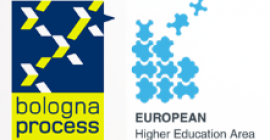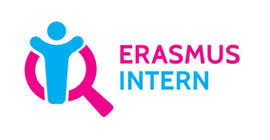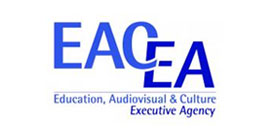TEMPUS IV
Tempus IV (2007-2013)
In the framework of six Calls for proposals of Tempus IV, Uzbekistan was awarded with 30 projects in total of 16.6 million EUR to be allocated to Uzbek partners: 14 Curricula Reform Joint Projects (JP), 7 Higher education and society JPs, 1 Governance Reform JP and 8 Structural Measures.
3 projects from the 1st Call (2008): AIDA, PERSEUS, NMPLIS
4 projects from the 2nd Call (2009): CANDI, HEICA, SWAN, UNIQTOOL
3 projects from the 3rd Call (2010): PROMENG, UnIvEnt, CIBELES
4 projects from the 4th Call (2011): QAPD, EPASAT, TERSID, ISMU
5 projects from the 5th Call (2012): QUEECA, GE-UZ, UZWATER, TuCAHEA, ENGITEC
11 projects from the 6th Call (2013): ITEDU, INOCAST, MACH, HIGHVEC, UNIWORK, DeTEL, SAMUz, PROMIS, MATcHES, UZDOC, UZHELTH.
Thanks to the European Commission's decision to complement the regional budget with a bilateral allocation of 5 million EUR for HEIs of Uzbekistan, 11 projects with involvement of Uzbek HEIs were selected out of 77 project proposals in 2013 (in comparison to 36 applications in 2012). Thanks to the new list of national priorities, updated by the Ministry of Higher and Secondary Specialised Education, spheres of cooperation and coverage of academic disciplines expanded much in the projects of the 6th Call.
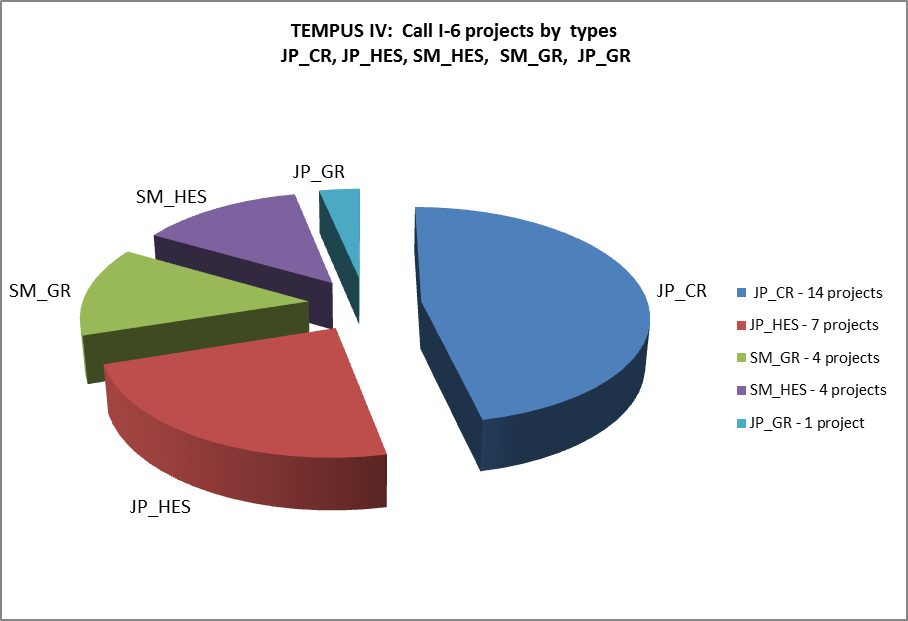
The main areas of intervention for Tempus IV projects are curricular reform in several disciplines (library and information sciences, computer science, management of water resources, engineering, teaching competencies for e-learning, agricultural technologies, environmental sciences, agricultural management, mechatronics and etc.), links between higher education institutions and enterprises, promotion of Bologna process.
In the framework of Tempus IV, 47 Uzbek HEIs, including 18 HEIs from Tashkent and 29 HEIs from 10 regions (Samarkand, Bukhara, Khorezm, Kashkadarya, Navoi, Djizzak, Namangan, Surkhandarya, Andijan, Fergana) and Republic of Karakalpakstan have participated in the selected projects.
.png)
The most active in Tempus IV projects were Bukhara State University, National University of Uzbekistan, Samarkand Agricultural Institute, Tashkent State Technical University, Bukhara technical institute, Fergana Polytechnic Institute, Karshi Engineering Economic Institute, Tashkent Automobile and Road Construction Institute and Karakalpakstan State University. TIIM, USU, AndAI, SamSU, SamIES, SamSIFL were involved in 3 projects.
Teams from AndSMI, AndSU, JizPI, KarSU, NavSMI, TChTI, TSAU, TSUE, TPI in Tashkent, UWED, SamSABI were involved in the implementation of 2 projects.
AndIEI, BukhMI, FSU, JizPI, KokPI, NavPI, SamMI, TMA, TPMI, AndMI, TFI, UzIAC, WIUT, UzSUWL, TABI, TSPU, TITLI, NamSU, NamIPI, NamITI, TSAU branch in Nukus participated in implementation of one Tempus project.
The Ministry of Higher and Secondary Specialised Education has been actively involved in 12 Tempus IV projects as a consortium partner: AIDA, SWAN, UNIQTOOL, QAPD, TERSID, GE-UZ, TuCAHEA, ITEDU, UNIWORK, UZDOC, UZHELTH, SAMUz.
The number of local non-academic partners involved in Tempus activities has considerably increased during the 4th programme stage, among them: Chamber of Commerce and Industry, JSC "Uzmetkombinat", CJSC "General Motors Powertrain - Uzbekistan", JSC “Ferghana-azot”, JSC "Elektrohimzavod", the State Committee for Nature Protection, JCS "Navoiazot", JSC “JV MAN-Uzbekistan”, National company “Uzbekturism” and a number of other agencies and manufacturing companies.
.png)
Tempus IV projects provided the basis for long-term cooperation with 70 universities and 6 non-academic institutions from 17 Member States of the European Union.
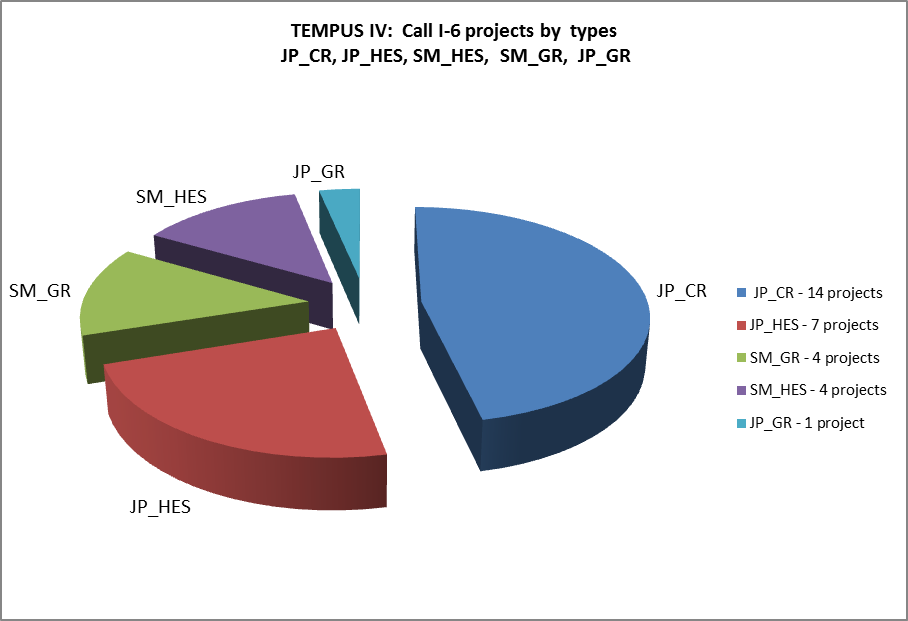
.png)
Tempus IV contributed to strengthening cooperation among partner-countries: Uzbek HEIs implement projects in cooperation with 102 HEIs and 43 non-academic institutions from 10 partner-countries (Russia, Ukraine, Belarus, Georgia, Azerbaijan, Armenia, Kazakhstan, Kyrgyzstan, Turkmenistan, and Tajikistan).
.png)
From Tempus programme to Erasmus+?
Recognition of the effectiveness of the Tempus programme and its achievements was confirmed during the discussions on the development of the new generation of European Union external cooperation programmes in the field of education for the next six years starting in 2014. The European Commission introduced to the Council of Europe the draft of the new programme - Erasmus for All (2014-2020) for the first time in November 23, 2011. It was decided to continue using the format of the programme and the main characteristics of the Tempus projects with a broad range of capabilities to assist higher education institutions in the partner countries. One type of institutional cooperation within «Capacity Building Projects» follows the format of Tempus.

